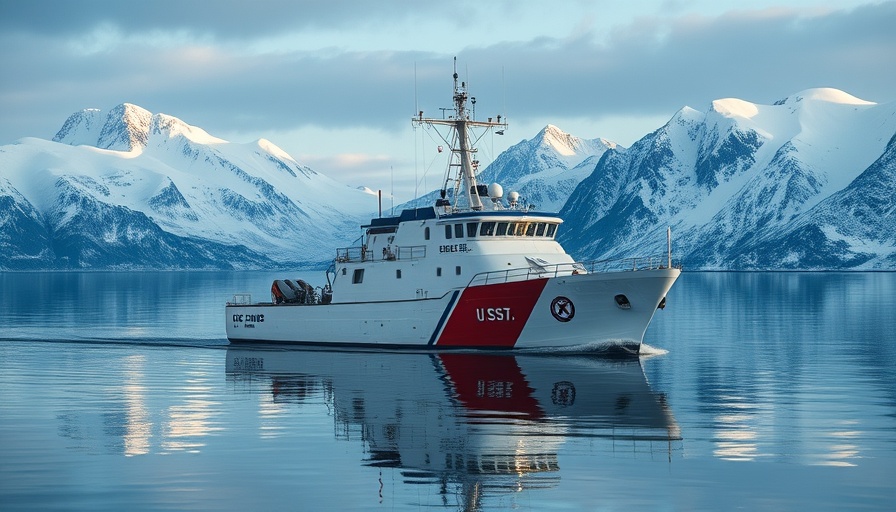
New Concerns Arise as U.S. Coast Guard Engages Chinese Research Vessel
Recently, the U.S. Coast Guard encountered the Xue Long 2, a Chinese-flagged research ship, off the coast of Alaska. This incident, occurring roughly 290 nautical miles north of Utqiagvik on July 25, 2025, has raised eyebrows and underscored tensions in Arctic waters.
The Xue Long 2, an icebreaker managed by the Polar Research Institute of China, was spotted operating within the U.S. Extended Continental Shelf (ECS)—an area where the U.S. holds exclusive rights to manage resources. The Coast Guard dispatched a C-130J Hercules aircraft from Air Station Kodiak to monitor the situation, highlighting the importance of maintaining a visible presence in these contested waters.
Understanding the Significance of Arctic Operations
The Arctic region has become a hotspot for geopolitical activity in recent years, particularly as climate change has opened up new pathways for navigation and resource exploration. This interaction reflects a growing strategy termed Operation Frontier Sentinel, where the Coast Guard enhances its surveillance to counter foreign incursions.
Rear Adm. Bob Little, Commander of the U.S. Coast Guard Arctic District, stated, "The U.S. Coast Guard, alongside partners and other agencies, vigilantly monitors and responds to foreign government vessel activity in and near U.S. waters to secure territorial integrity and defend sovereign interests against malign state activity." This proactive stance is essential for ensuring a balanced power dynamic in the Arctic, where various nations are jostling for influence.
Local Perspectives on National Security
For communities along Alaska’s coast, the presence of a foreign research vessel strikes a chord. Many residents are concerned about the implications of such incidents on local ecosystems, economies, and national security. It serves as a reminder of the delicate balance between cooperation and competition in the rapidly changing Arctic landscape.
Community leaders emphasize that while foreign research and collaboration in science can be beneficial, safeguarding local resources and territories must remain a priority. Local fishermen, for instance, are especially apprehensive about potential impacts on fisheries from increased foreign presence.
Future Directions in Arctic Policy
The future of Arctic policy will likely involve more direct engagements like this. As more countries express interest in the region's resources, the U.S. can expect similar encounters to multiply. Stakeholders from various sectors emphasize the need for policies that not only protect U.S. interests but also promote sustainable development in the Arctic.
While the Coast Guard's actions affirm its commitment to territorial integrity, local communities will need to remain vigilant. Policy-makers must engage not just at the national level, but also incorporate local voices into discussions about the Arctic’s future.
A Call to Stay Informed and Involved
As the dynamics of international waters evolve, it is essential for citizens to stay informed about developments that affect their community and national security. Engagement in local discussions about the implications of foreign maritime activities can empower residents and ensure that their voices are heard. By fostering a culture of awareness and action, communities can help guide the direction of Arctic policy.
 Add Row
Add Row  Add
Add 




Write A Comment